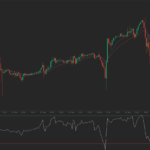West Texas Intermediate crude fell on Friday to mark a fifth straight weekly decline, the longest losing stretch in nine months, as ample global supplies and falling gasoline demand in the US during the peak summer driving season spurred bearish sentiment. A stronger dollar and receding geopolitical unrest in key regions of interest for the oil markets also helped push prices lower.
On the New York Mercantile Exchange, WTI crude for delivery in October fell by 0.33% on Friday to settle at $93.65 a barrel, marking a 1.7% weekly decline. Prices ranged between a weekly high of $95.14 on Monday and a low of $92.50 hit on Thursday, the lowest since January.
Meanwhile on the ICE, Brent for settlement in the same month shed 0.33% on Friday to settle the week at $102.29, more than 1% lower. The European crude benchmark fell to $101.07 on Tuesday, the lowest level since June 2013. Brents premium to its US counterpart narrowed to $8.64 a barrel from $8.67 on Thursday.
On Wednesday, the Energy Information Administration reported that total motor gasoline inventories rose for the first time in three weeks, having added 0.6 million barrels in the week through August 15th to 213.3 million, defying analysts’ expectations for a 1.4-million drop. Distillate fuel stockpiles, which include diesel and heating oil, fell by 1.0 million barrels to 121.5 million, compared to a projected 0.3-million decline. Gasoline delivery, a gauge of demand, slid to 8.78 million barrels a day, the lowest since June.
US crude oil inventories fell by 4.5 million barrels last week to 362.5 million, beating analysts’ forecasts for a 1.75-million drop. Supplies at Cushing, Oklahoma, the biggest US storage hub and delivery point for NYMEX-traded contracts, rose to 20.2 million barrels from 18.4 a week earlier. Domestic crude production jumped to 8.577 million barrels of crude oil per day, up from 8.556 million last week and more than 1 million above year-ago levels.
Additionally, the American Petroleum Institute said in its monthly report on Thursday that US crude production surged to the highest in 28 years in July.
Carl Larry, president of Oil Outlooks & Opinions LLC in Houston, said for Bloomberg: “The focus is definitely on the U.S. and on concern about demand as we head into the maintenance season. Everybody is wondering if demand will stay steady. People are reducing risk exposure now.”
Further pressuring prices on the supply side, OPEC raised its crude output in July, despite geopolitical tension in some of its member countries. Iraq’s output remained near record high levels as the country’s southern parts, which account for most of nationwide production, were unaffected by clashes with Islamic State in the north. Saudi Arabia, the Organization’s top producer, had its output raised to 10 million barrels per day in July.
Meanwhile, Libyan crude production also rose as the country managed to reopen its biggest export terminal Es Sider, among others, and loaded a second tanker. Albeit still below its 1.4-million-bpd levels from a year earlier, Libya’s output is gradually rising, having reached around 610 000 bpd by mid-week.
Factory growth
Oil prices were also pressured as a preliminary gauge showed manufacturing activity growth in China falling to a three-month low in August. The Flash China Manufacturing PMI registered at 50.3 in August from July’s final reading of 51.7. At the same time, the Flash China Manufacturing Output Index slid to 51.3 from 52.8 in July, also a three-month low.
Output, new orders and new export orders increased, but at a slower rate, while employment in the sector decreased at a faster rate. China is the world’s second-biggest oil consumer and will account for 11% of global demand this year.
In the Eurozone as a whole, manufacturing activity growth fell to the lowest since July 2013. The flash manufacturing PMi slid to 50.8, trailing projections for a moderate drop to 51.3 from 51.8 in July.
Upbeat data from the US, however, provided some support. Existing home sales increased more than forecast in July, and so did the Philly Fed manufacturing index, while jobless claims were fewer. Earlier data showed building permits and housing starts posted significant improvement, while CPI was largely as expected, and matching the Fed’s inflation target.
The upbeat data reinforced another boost for dollar bulls, as minutes from the Fed’s July meeting were released on Wednesday, revealing a more hawkish stance by some policy makers, who debated whether a rate hike should be introduced earlier than previously expected. Officials agreed that further positive data was needed before such a decision be taken, though the hint of a hike boosted the US dollar to a one-year peak.
Fed Chief Janet Yellen said on Friday that with the US labor market improving, U.S. central bankers are shifting to debating when they should begin dialing back Feds extraordinary monetary easing.
Geoplitics
In Libya, an armed militia alliance captured Tripolis international airport after clashes continued for nearly a month. Libyas new government, largely opposed to the Islamists, condemned the move.
In the Gaza Strip, Hamas sources said on Friday 18 people have been executed due to their alleged collaboration with Israel after an Israeli airstrike killed three senior Hamas leaders on Thursday. Officials said that at least two more Palestinians were killed overnight.
On Saturday, an Israeli air strike demolished a 12-storey block, allegedly a Hamas command centre, injuring 22 people, while at least 10 other Gazans were killed, including two children. The death toll has reached 2 090 Palestinians, most of which civilians, and 67 Israelis, mostly soldiers, since the offensive on Gaza began on July 8th.
Palestinian President Mahmoud Abbas called on Israel and Hamas to attend fresh truce talks, that are to be held with the Egyptian foreign ministry as a mediator.
In Ukraine, a Russian humanitarian convoy which entered Ukraine on Friday without the governments permission to carry supplies to rebel-held eastern Ukraine, has bordered back to Russia. The US and EU condemned Putins move as an unnecessary spark of tensions and a violation to Ukraines sovereignty.
Technical view
According to Binary Tribune’s daily analysis for Monday, West Texas Intermediate October futures’ central pivot point is at $93.54. In case the contract breaches the first resistance level at $94.15, it will probably continue up to test $94.66. Should the second key resistance be broken, the US benchmark will most likely attempt to advance to $95.27.
If the contract manages to breach the first key support at $93.03, it will probably continue to drop and test $92.42. With this second key support broken, movement to the downside will probably continue to $91.91.
Meanwhile, October Brent’s central pivot point is projected at $102.37. The contract will see its first resistance level at $102.75. If breached, it will probably rise and test $103.20. In case the second key resistance is broken, the European crude benchmark will probably attempt to advance to $103.58.
If Brent manages to penetrate the first key support at $101.92, it will likely continue down to test $101.54. With the second support broken, downside movement may extend to $101.09 per barrel.





